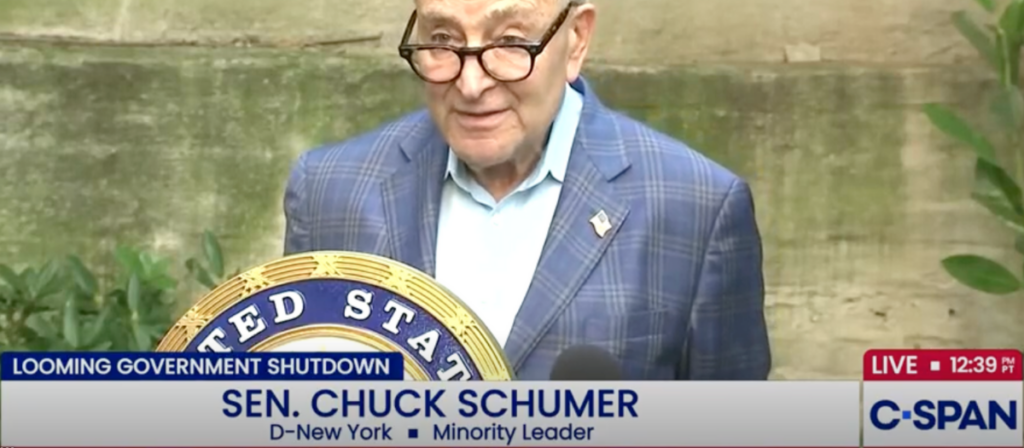Once again, it’s the twelfth hour before government funding runs out, and it is unclear what Congress will do. Will they pass a spending bill in time? Or will they instead trigger a government shutdown, beginning on October 1? Let’s dive into what we know about the current state of play.
Just before leaving D.C. for recess last Friday, the House of Representatives passed a clean continuing resolution, also known as a “CR,” that would extend current funding levels until November 21. “Clean” simply means that the bill neither adds nor subtracts any funding provisions. This is the strategy most preferred by Republicans in Congress, as well as President Trump. They argue this will allow the government to remain open and give them more time to negotiate a new funding package. By avoiding a shutdown, the White House will be able to continue implementing the agenda that millions of Americans voted for last November.
However, the Democrats in Congress are not interested in allowing that agenda to move forward. So instead of supporting the Republicans’ version of the CR, they’ve proposed their own a bill, a CR that would extend funding to October 31 but is far from clean. Their bill includes a permanent extension of Obamacare premium tax credits (which fund abortion services), reverses billions of dollars in spending rescissions and restores funds to politically biased National Public Radio (NPR). Not only would this require Republicans to undo much of the good work they fought so hard for earlier this year, but the cost of this Democratic package is an eyewatering $1 trillion-plus.
When the Senate brought up the House-passed CR last week, Democrats blocked it. They believe that a shutdown under a government with a Republican trifecta will backfire on the White House. Subsequently, Senate Republicans blocked the Democrats’ proposed CR, noting that it was not introduced in good faith.
In the Senate, any funding bill of this kind requires 60 votes to pass, meaning that seven democrats will need to join their Republican colleagues in voting to fund the government. Minority Leader Chuck Schumer (D-New York) has said Democrats will not vote for the clean CR, even though they know very well that their proposal is likely to cause a government shutdown.
Are there seven democrats willing to go against their party for the sake of keeping the federal agencies open? One, Sen. John Fetterman (D-Pennsylvania), has already signaled his support for the Republican bill by voting for it last week. Will six others join him? Or will their party’s determination to halt President Trump’s agenda result in a Schumer-led government shutdown? That remains to be seen.
Senate Majority Leader John Thune (R-South Dakota) is expected to bring the Republican CR up for a procedural vote before the shutdown starts, which means Schumer will have to keep pressuring Democrats to vote against keeping the government open. This will be a tough task for those Democrat senators who represent states with large numbers of federal workers, such as Virginia and Maryland, or in states that voted for Trump, such as Michigan. While Trump and Republicans are advocating to simply maintain the status quo, Democrats are arguing for untenable policy changes.
Schumer and House Minority Leader Hakeem Jeffries (D-New York 8th) are were scheduled to meet with Trump this coming Thursday but that has now been cancelled. We will monitor this ever-changing situation and what it means for the current funding fight.


